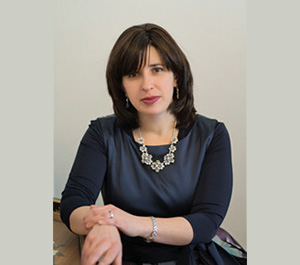

As the State University of New Jersey, with campuses in four cities and a strong presence in dozens of other towns, Rutgers often makes headlines. Sometimes it’s for groundbreaking research, sports teams making fan-rousing wins, top-notch guest speakers and other noteworthy activities on campus. At other times, the headlines are less complimentary, and draw attention to serious missteps.
During the 2017-2018 academic year, Rutgers found itself in the latter category a few times, making news with a small group of faculty members whose statements or actions reflected crude anti-Semitism that was roundly denounced by many on campus and in the larger community.
This year, in a serious effort to make positive strides, the university has planned two high-profile events to improve the campus climate and earn positive acclaim.
On Sunday March 31, the university will hold a workshop, led by a professional from the Anti-Defamation League, titled “Combating Discrimination, Promoting Dialogue.” The three-hour workshop is open to university administrators, faculty, staff and students, and has attracted nearly 100 participants. Later that afternoon the university will host a keynote address by Dr. Deborah Lipstadt, a professor of Holocaust Studies at Emory University in Atlanta, an award-winning author, and celebrated activist against Holocaust denial, discussing the topic of her new book, “Antisemitism Here and Now.”
Both events are coordinated by the Jewish Faculty, Administration and Staff (J-FAS) group on campus and strongly supported, both financially and through on-campus promotions, by the Rutgers President’s Initiative on Diversity and Inclusion. The programs have received additional support from the Hann Foundation, George and Harriet Blank, the Jewish Federation in the Heart of New Jersey and the Rutgers University Hillel, which is donating the use of its building on College Avenue in New Brunswick for Dr. Lipstadt’s talk.
Rebecca Cypess, an associate professor in the Music Department at Rutgers’ Mason Gross School of the Arts, and co-chair of the J-FAS group (with Jennifer Mandelbaum, a professor in the Department of Communication), praised the university administration for its many efforts to build a positive environment on campus by supporting these programs. “These are complex times and recent events in New Zealand only underscore the serious dangers we face,” said Professor Cypess. “Rutgers isn’t alone in seeing an uptick in anti-Semitism. What makes the university distinctive are its strong efforts to combat it and reinforce its bonds with the local Jewish community.”
Professor Cypess pointed out the value of bringing to campus a nationally recognized speaker, Dr. Lipstadt, who “can speak to the issues of anti-Semitism very informatively” and highlight what can happen if outbreaks of bigotry are not resolutely addressed. She also praised the work of the Anti-Defamation League in fighting bigotry, by designing a well-respected curriculum that has engaged others in defining, discussing and deterring actions that marginalize different groups.
The University Administration, for its part, sees these two events as a vital part of its ongoing work to set a positive tone on campus so that it is welcoming to all groups. “Rutgers values the diversity of our students and employees and provides numerous occasions to learn about issues that affect our diverse population,” said Barbara Lee, senior vice president for Academic Affairs at Rutgers.
“We are pleased at the response of our community to the announcement of these two events. It is important, particularly at a public university such as Rutgers, that we discuss serious issues such as anti-Semitism—its history, its effects, and how to combat it. The workshop and Dr. Lipstadt’s talk should result in a better informed university community.”
David Greenberg, a professor in the Journalism and Media Studies Department of the School of Communication and Information at Rutgers, and a board member of the J-FAS group, praised both activities and drew particular attention to the ADL workshop. “I think everyone realizes that anti-Semitism is on the rise. We’ve even had some significant incidents here at Rutgers in recent years,” he said. “As we learned in the Ilhan Omar incident, a lot of people who are in other respects progressive have trouble recognizing or denouncing anti-Semitism, especially when it comes from people associated with the left. This educational workshop seems to me one of the best possible ways to address the problem on a college campus. We need not only to reaffirm that anti-Semitism and other forms of bigotry are inimical to our values, but also to help students and faculty develop an appreciation for how it appears. The ADL has been educating Americans about these issues for decades.”
Rutgers Hillel is a co-sponsor of both events. Andrew Getraer, director, said they are proud to be hosting Deborah Lipstadt, one of America’s premier advocates against anti-Semitism and Holocaust denial, for her public address on March 31. “Anti-Semitism today is more widespread, more influential, and more threatening, both globally and here in America, than at anytime in the past 70 years” said Getraer. “It is therefore essential that all people of goodwill, Jews and non-Jews alike, become more aware and educated about the most pernicious and persistent prejudice in the history of humanity.” He added: “We also know that anti-Semitism may start with Jews, but it never ends with Jews. It is the foundation of a conspiracy-minded worldview that eventually destroys everything it touches. Our only defense is to educate ourselves and our society in how to recognize anti-Semitism and to stand up to it before it consumes us all.
Dr. Lipstadt’s talk is free but requires advance registration.
For more information and tickets, go to: www.jewishheartnj.org/lipstadt
By Harry Glazer
�











